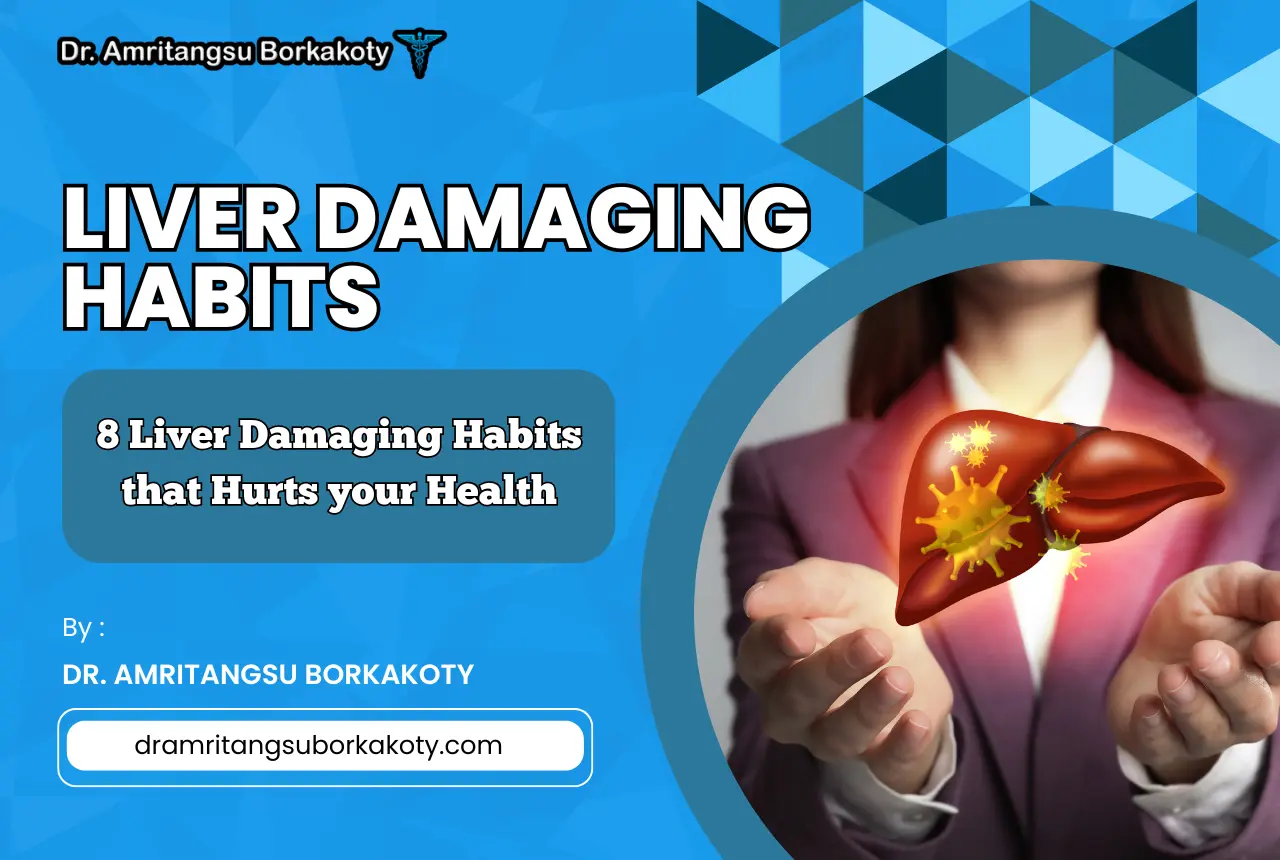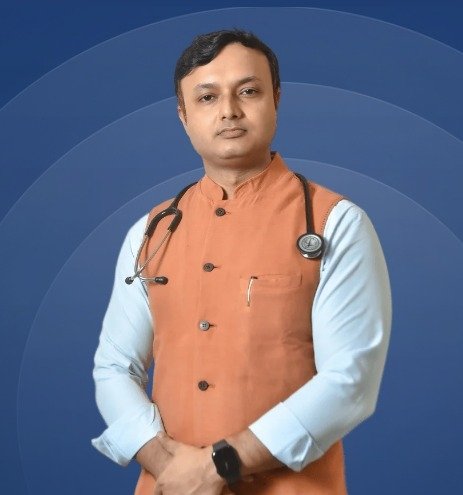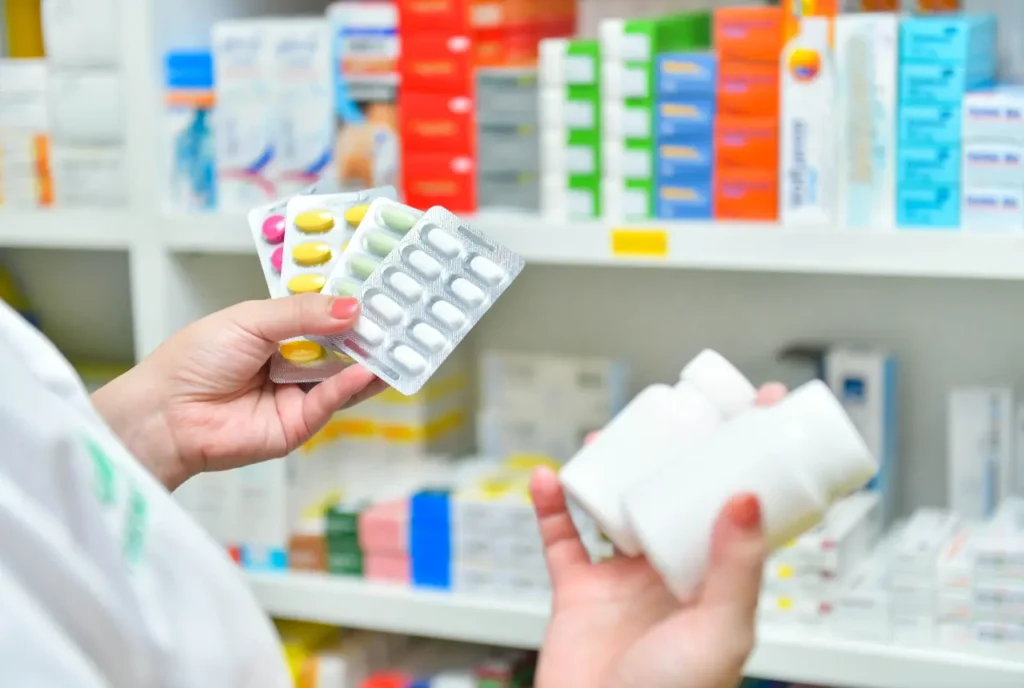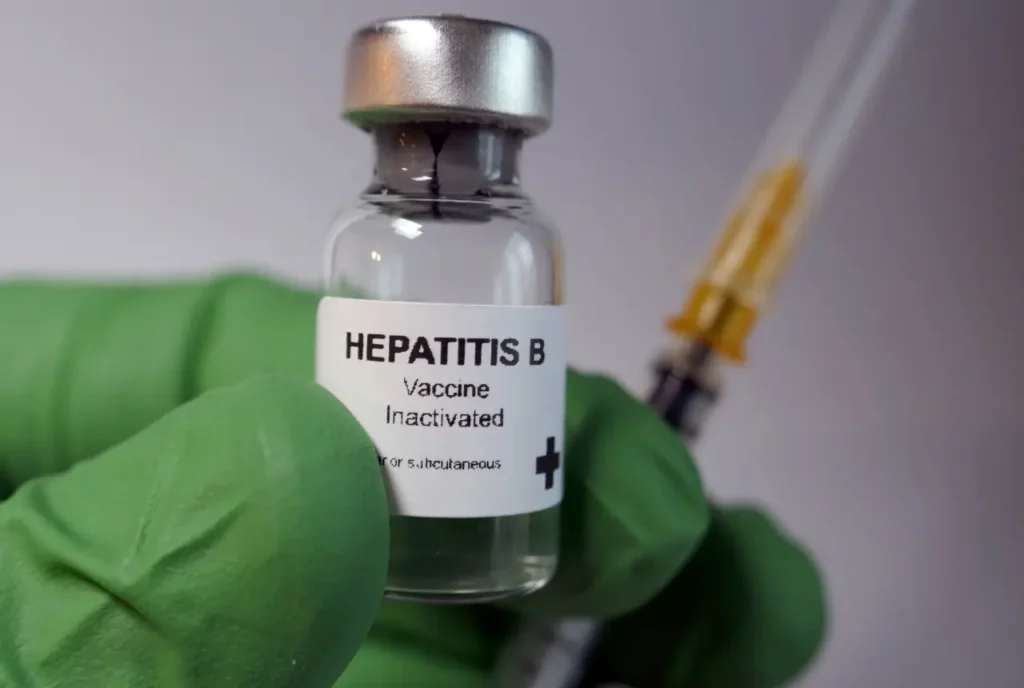
-
 Posted By Dr. Amritangsu Borkakoty
Posted By Dr. Amritangsu Borkakoty -
-
Comments 0
Do you know our liver is the only organ in our body that performs over 500 essential functions?
It cleanses blood, eliminates toxins, stores minerals, and vitamins, transforms nutrients into energy, and helps in many other crucial life processes.
But, in our day-to-day lives, we carry out some liver-damaging habits that we do not know are affecting our health adversely.
Most of the time, liver damage is gradual and does not produce any symptoms. That’s why it often goes unnoticed until the last stage when it becomes a medical emergency.
Therefore, we must keep our liver damaging habits in check and get regularly checked for diseases like cirrhosis, cancer, and fatty liver.
Let’s look at some of these habits you know you have but do not know are affecting your health.
8 Liver Damaging Habits That Can Compromise Your Health
The signs of liver damage always come late. Make sure you keep the following daily habits in check to keep your liver from deteriorating.
Excessive Alcohol Consumption

Alcohol is processed by the liver, and excessive intake of it puts a direct strain on its capabilities. When we drink alcohol, the liver breaks it down into acetaldehyde, a toxic byproduct.
Over time, this constant overload and deposit can lead to fatty liver disease, where excess fat accumulates in the liver cells.
If left unchecked, this can become cirrhosis, a condition where healthy liver tissue is replaced with scar tissue, affecting its function in the worst possible way.
Furthermore, excessive alcohol consumption increases the risk of liver cancer which is life-threatening.
Unhealthy Diet and Obesity

A diet rich in processed foods, saturated fats, and added sugars can wreak havoc on your liver health. These foods contribute to fat buildup in the liver, similar to the effects of excessive alcohol.
This condition, known as non-alcoholic fatty liver disease (NAFLD), is becoming increasingly common due to our unhealthy eating habits.
Obesity is a significant risk factor for NAFLD progression, as excess body fat increases the amount of fat stored in the liver.
Certain Medications and Supplements

While medications and supplements can be beneficial for our health, some may be potentially harmful to our liver, especially if misused or overused.
Make sure, you consult your doctor before taking any supplements. Their expertise can help determine if a supplement you are opting for is safe for you and recommend the appropriate dosage.
Similarly, stick strictly to prescribed medication dosages to minimize any potential risk to your liver.
Not Drinking Enough Water

A healthy person is needed to drink at least 8 glasses of water a day.
The human body is made up of 66% of water and we need to replenish that amount during a day’s activity like walking, running, working out, or working. If we fail to hydrate ourselves, it affects our liver.
Smoking
Cigarette smoking is a habit that has an indirect effect on the liver. Toxic compounds in cigarette smoke eventually reach the liver, causing oxidative stress. As a result, the liver produces free radicals, which can injure liver cells.
Sleep Deprivation

Not getting enough sleep can cause oxidative stress in the liver, which is one of the most shocking risks.
It has been found that people who do not get enough sleep also have a lot of different health problems, like diabetes, obesity, heart disease, and more.
Therefore, as much as it is important to take medication at the right time, it is also important to catch at least eight hours of sleep every day.
Chronic Hepatitis Infection

Hepatitis is a viral infection that attacks the liver, causing inflammation and potentially leading to liver damage.
There are different types of hepatitis, with A, B, and C being the most common.
While hepatitis A usually resolves on its own, chronic hepatitis B and C infections can silently damage the liver over time, leading to cirrhosis and liver cancer.
Getting tested for hepatitis and seeking treatment if necessary is crucial for protecting your liver health.
Sharing Needles and Unsafe Sexual Practices
Hepatitis B and C are contagious and can be transmitted through sharing needles or engaging in unsafe sexual practices. Sharing needles with someone infected with hepatitis B or C significantly increases your risk of contracting the virus.
Similarly, unprotected sex with someone infected with hepatitis B or C can also lead to transmission. Practicing safe sex and avoiding sharing needles are essential steps in protecting your liver from these potentially life-threatening infections.
Recognizing the Signs and Symptoms of Liver Damage
While the liver is a resilient organ, neglecting it can lead to a decline in its function. Early detection of liver damage is crucial for successful treatment. Be aware of the following signs and symptoms, and consult a doctor if you experience any of them:
- Fatigue
- Loss of appetite
- Nausea and vomiting
- Abdominal pain or swelling
- Dark urine
- Jaundice (yellowing of the skin and eyes)
- Itchy skin
Debunking Myths: How to Improve Liver Health
There are many myths surrounding liver cleanses and detox drinks.
The truth is, that your liver is a naturally detoxifying organ, constantly filtering your blood and removing harmful substances. The best way to support your liver function is through a healthy lifestyle. Here are some practical strategies:
- Healthy Liver Diet: Focus on a diet rich in fruits, vegetables, whole grains, and lean protein. These foods provide essential nutrients that promote liver health.
- Exercise Regularly: Regular physical activity helps maintain a healthy weight and improves overall health, including liver function.
- Maintain a Healthy Weight: Managing your weight reduces the risk of fatty liver disease and its progression.
- Minimize Alcohol Consumption: Moderate alcohol consumption or abstinence is best for optimal liver health.
- Get Vaccinated: Getting vaccinated for hepatitis A and B can prevent these infections and protect your liver.
Conclusion
By being aware of these liver-damaging habits, you can take proactive steps to protect this vital organ. Remember, a healthy lifestyle is your best defense. If you have any concerns about your liver health, consult a doctor for personalized advice. Your liver silently works tirelessly for your well-being; prioritize its health for a longer, healthier life.
Recent Posts
- Common Causes of Stomach Ulcers and Effective Treatment Options
- Early Symptoms of Liver Damage: How to Spot the First Warning Signs Before It’s Too Late
- Best Treatment for Hepatitis B and C: Your Complete Guide to Symptoms, Care, and Prevention
- How to Reduce Liver Inflammation Fast: 5 Proven Tips for Rapid Liver Recovery
- Why You Shouldn’t Ignore NAFLD: 5 Shocking Health Risks You Need to Know



